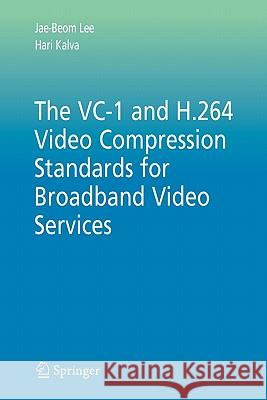The VC-1 and H.264 Video Compression Standards for Broadband Video Services » książka
The VC-1 and H.264 Video Compression Standards for Broadband Video Services
ISBN-13: 9781441943767 / Angielski / Miękka / 2010 / 496 str.
Probably the most interesting and influential class to the authors about video compression was EE E6830 (Digital Image Processing and Understanding) at Columbia University in 1995, offered by adjunct Professors Dr. Netravali, Dr. Haskell and Dr. Puri at AT&T. In the class, they impressed the authors with how such difficult and mysterious statements in video standards could be interpreted/ understood in plain human languages. Since then, the authors had had a dream that similar services could also be provided to interpret difficult video subjects into reasonable level of explanations in the future. The VC-1 standard is fundamentally the same as WMV-9. WMV-x video compression technologies of Microsoft have long been the most popular over the Internet due to popularity of Microsoft Operating Systems. The technologies were published in August 2005 for the first time in a formal SMPTE document in the name of VC-1, and the official standard then was finalized in April 2006. In contrast, the MPEG committee recently standardized the MPEG AVC (H.264) video coding standard, whose first version was officially published in May 2003, and several subsequent amendments and corrigenda then followed until recently. These two are highly efficient compression standards that can make hi- quality video services possible for Digital Storage Media (e.g., Blu-ray DVD or HD DVD) and/or broadband networks applications (e.g., IPTV).











